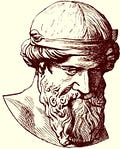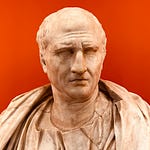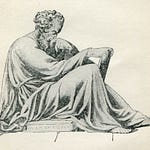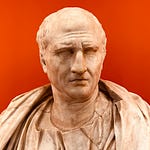“SOCRATES: Good day to you, Ion. Where have you come from on this visit to us? From your home in Ephesus?
ION: Oh no, Socrates, from Epidaurus, from the festival of Asclepius. …
SOCRATES: Well then, did you take any part in the competition? And how did you fare in it?
ION: We carried off the first prize, Socrates.
SOCRATES: That’s splendid news. … I must confess, Ion, I’ve often envied you rhapsodes your art, which makes it right and proper for you to dress up and look as grand as you can. And how enviable also to have to immerse yourself in a great many good poets, especially Homer, the best and most inspired of them, and to have to get up his thought and not just his lines! For if one didn’t understand what the poet says, one would never become a good rhapsode, because a rhapsode has to be an interpreter of the poet’s thought to the audience, and that’s impossible to do properly if one does not understand what he is saying. So all this is worth envying.
ION: True, Socrates, true. At any rate, I find this side of my art has given me a lot of work, and I reckon I talk on Homer better than anybody. …
SOCRATES: I’m glad to hear it, Ion. …
ION: Yes indeed, Socrates, it’s well worth hearing how splendidly I have embellished Homer. I think I’ve got to the point where I deserve to have the homeridae crown me with a golden crown.
SOCRATES: Yes indeed, and one day I’ll find myself time to listen to you. For the moment, however, answer me just this: does your expertise extend to Homer alone, or to Hesiod and Archilochus too?” (Plato, Ion, 530a-531a)














Plato on the value of poetry